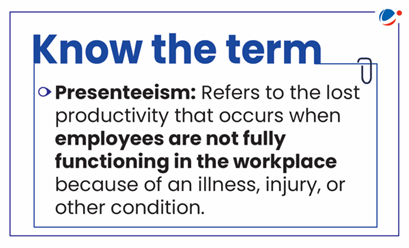Why in the news?
There have been several discussions regarding providing a Paid Menstrual Leave policy in India.
What is menstrual leave?
It is a type of leave where women and trans women may have the option of taking a paid leave from their workplace during the period of menstruation.
Significance of providing menstrual leave policy in India
- Aligns with fundamental rights: Menstrual leave could be in line with Article 21 (Right to Life) and Article 14 (Right to Equality) of the Constitution.
- Additionally, the Constitution empowers the State to make special provisions for women and children under Article 15(3).
- Addresses the unique health needs of women: Menstruation is accompanied by a variety of moderate to severe symptoms such as cramps and fatigue, etc., impacting women’s daily lives.
- Further, lack of proper sanitation facilities at the workplace can impact women’s hygiene and reproductive health.
- Mitigates presenteeism: It would provide an opportunity for society and employers to reevaluate attitudes surrounding absenteeism and work ethic.

- Boosts productivity: It will help create a positive work environment and culture, enhancing overall productivity, and fostering healthier workplace dynamics.
- De-stigmatizes discussion around women’s health: Discussion about menstruation among all employees may foster support for women’s reproductive health and reproductive rights.
Status of menstrual leave policy in India
|
Issues/Challenges related to menstrual leave
- Potential discrimination in workplace: Offering specific leave for menstruation may inadvertently lead to biases or stereotypes against women, impacting hiring decisions, promotions, and overall career advancement.
- Perpetuating Sexist Beliefs and Attitudes: Menstrual leave may perpetuate the gender stereotypes and notions of biological determinism, like assumptions that women are unfit for the workplace and, thus, justify gender discrimination in society.
- Resentment among employees: Accommodating menstrual leaves may disrupt workflow, increase workload for other team members, or create resentment among employees who do not receive similar benefits.
- Financial strain: Providing additional leave benefits may result in increased operational costs, affecting budgets and profitability, particularly for small businesses and startups.
- Implementation in informal sector: Informal workers, Freelancers and gig workers often lack traditional employee benefits, making it difficult to extend benefits.
- Social stigma: Even if provided, Female employees may feel hesitant to seek benefits due to societal stigma around discussing menstrual issues in public.
Way Forward
- Implement Menstrual leave Policies by incentivizing private firms to provide menstrual leave and conveying to them the benefits of enhanced female participation.
- Seek Alternatives which offer flexibility to women, such as working from home, customized work schedules, etc.
- Creating an inclusive workplace environment by ensuring equal access to hygienic facilities, private spaces for menstrual hygiene management, and stocking essential supplies like sanitary pads, tampons, heating pads, etc.
- Destigmatizing menstruation through education and awareness campaigns on menstrual health and hygiene.
- Reconsider healthy work culture by creating sick, parental, and vacation leave policies that are responsive to worker needs, including the provision of additional paid leave.
Global initiatives on menstrual leave policy
|



